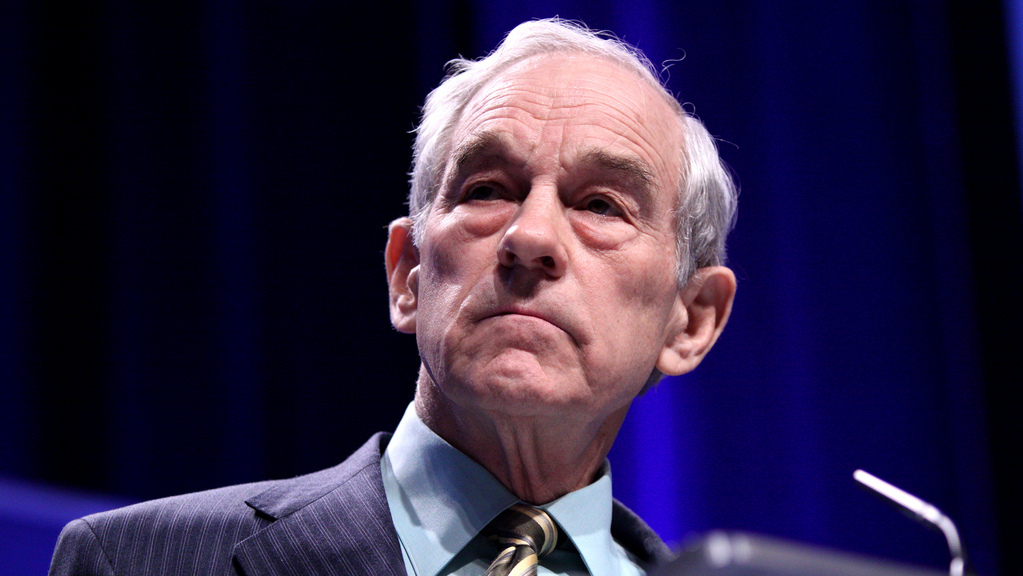The new top tier of Bachmann, Perry, and Romney — created by Bachmann’s Iowa straw poll win, Perry’s entry into the race and Romney’s lead so far in many national and state polls — has unleashed torrents of talk about the reshaped race. – The Daily Beast, (Aug. 14, 2011)
This analysis of the Iowa straw poll above came to a questionable conclusion after the mid-August event. It correctly brings three prominent Republican presidential contenders to the forefront, but not-so-mistakenly neglects to point out that Ron Paul finished in second place – only 152 votes (nine-tenths of one percentage point) behind Michele Bachmann.
It comes as no surprise that in October, The Pew Research Center’s Project for Excellent Journalism released a study saying Paul had received the least overall coverage of any candidate in the Republican presidential candidate race. More frustrating is that this stance against Paul is more than mere oversight; it’s a calculated approach by the media because not only is Ron Paul bad for the media, but he is bad for democrats and republicans.
What we know
The last thing you probably heard about Ron Paul wasn’t a good thing. (That’s assuming you’ve heard anything at all.) Most recently in the news, the Republican presidential candidate and Libertarian congressman from Texas has been skewered over racist content printed in newsletters he was in charge of in the 1990’s. Before that it wasn’t all bad: Media reported Paul surpassing Newt Gingrich in an Iowa poll as the state’s front-runner for the 2012 Republican presidential nomination. Before that? Not much at all. It seems counter-intuitive for the media to treat Paul like a nuisance who is getting in the way of the real contenders. After all, the media ought to look beyond the status quo in search of outliers – and there is no bigger outlier in the Republican race than Ron Paul.
Paul flies under the radar of most major media outlets, despite having one of the more vocal and passionate fan bases. On top of that, a host of headlines on the Internet after the August Iowa straw poll, in some shape or form, read, “Bachmann wins Iowa straw poll, Pawlenty 3rd.” And it’s not that Paul was a distant second; his showing was essentially a tie for first considering the margin of separation between himself and Bachmann and the near 17,000 total votes cast. How can a candidate with that type of popularity become such a glaring omission among the political landscape? Even the staff at “The Daily Show” created a compilation of the media’s poor handling of Paul’s campaign.
Politico’s Roger Simon came to the defense of Paul on CNN, saying his success in polls hasn’t translated into media coverage when it should. Syndicated radio talk show host Stephanie Miller is quick to chime in during the clip, saying Paul is not getting media coverage because the media feels that he is “unelectable.”
That seems to be the consensus of media defenders: Ron Paul doesn’t receive serious media coverage because the media have already deemed him unelectable.
A threat to both parties
Paul spoke out during a Dec. 23 event in Cedar Rapids, Iowa, cutting into the core of conservatism and its unconditional support for the military and its own foreign policy.
“We were advised, many years ago, by a Republican president who said, ‘Watch out – there’s an alliance between the military and the Congress. And they will beat the drumbeat of war. Scare the people, there’s another Hitler coming. They’re going to bomb us. And we have to attack another country,'” Paul said.
How many Hitlers have we had here in the last 30 years? They always have to have an enemy in order to have to spend the money and buy more and more weapons.”
Much of Paul’s foreign policy includes an isolationist approach that calls for U.S. troops to withdraw from countries around the world and blames the current foreign policy for blowbacks to the U.S. from other countries.
At the same event, he also had this to say:
If the Democrats promise one thing, then they get in and act like Republicans. Republicans promise something, they get in and act like Democrats. But the people are upset. They are getting angry. They are speaking out and I think it’s very healthy.”
Paul is seemingly the epitome of balance that voters have sought on a number of issues. He brings to the forefront issues from both political polarities, aligning himself with both the tea party and the Occupy movement. Paul is “out of line” with both democrats and republicans, pointing out flaws of both organizations. During debates Paul is straightforward with his answers, answering with his own policies and not once attacking the Obama administration, which is popular among the other candidates.
It’s increasingly more difficult for Paul to obtain media airtime when media companies have more glaringly shifted to either side of the political aisle. Would Fox News, a station that media analysts say has a conservative slant, want to let Paul inform viewers about the notion that George W. Bush grew the size of government, or that conservatives once wanted to eliminate the Department of Education, only to grow it and expand its power? Or that a report in July said that Paul received more military fundraising than the entire GOP combined – even more than Obama?
On the other hand, would MSNBC, a station that analysts say has a liberal slant, want to let viewers know that Paul is currently polling better than Obama among non-white voters? Or remind them that Obama was an outspoken critic of the Iraq War, but let it drag on for three years after taking office before ending it? Paul addresses the issues that show America’s weaknesses while his Republican counterparts are relying on personal attacks on one another.
Feature photo | Congressman Ron Paul of Texas at CPAC 2011 in Washington, D.C. Photo | Gage Skidmore


